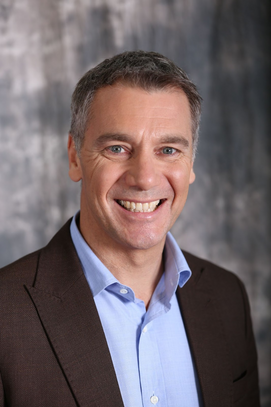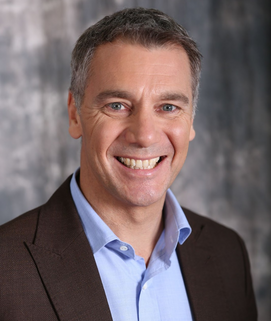Kaer Expands Sustainable Cooling Portfolio in Asia with S$62 Million in Contracts in Singapore and Malaysia
- 20% increase in cooling delivered in 2022 from 2021
- Contracts signed with Lendlease in Malaysia and Gaw Capital in Singapore signal a 30% growth to Kaer’s CaaS portfolio in 2023
- Unveiling of new sustainable cooling systems at Fullerton Hotel, the Excelsior Hotel, and Dnata.

Justin Taylor, CEO, Kaer
Singapore-based Cooling as a Service (CaaS) pioneer Kaer has secured over S$62 million in contracts for leading retail and commercial projects in Singapore and Malaysia. This will result in a 30% increase in cooling delivered from Kaer’s CaaS portfolio, highlighting strong demand for sustainable cooling solutions and the growth of Kaer’s innovative CaaS model.
Kaer’s CaaS model offers cooling at a fixed rate on a pay-as-you-use basis to support the growing demand for commercial and industrial cooling across Asia. In 2022, Kaer implemented CaaS at partner buildings Parklane, Excelsior Hotel, Dnata Catering, Dnata Cargo, and GR.ID, lowering carbon emissions and, improving energy consumption by over 50%.
Aside from that, the company also successfully completed a low global warming potential (GWP) refrigerant pilot project, successfully achieving a GWP rating of 0.97 from 1,300.
Kaer’s newly acquired partnerships also include landmark projects such as Fullerton Hotel in Singapore and The Exchange TRX in Malaysia, with contract terms spanning between 10 and 15 years. According to Justin Taylor, Chief Executive Officer, Kaer, “In the last 12 months we have continued investing in people, new technology and growing capabilities in new markets, all in support of accelerating the adoption, delivery and superior customer experience under the CaaS model. We have showcased that CaaS leads the way towards a low carbon and climate resilient future. We are proud of what we have achieved, but this is just the beginning.”
Traditionally, building owners purchase, install and run cooling systems, with high upfront costs, along with ongoing maintenance and operational costs. Under the CaaS model, customers simply dictate the cooling conditions they require and Kaer delivers that as and when needed by the building. Kaer assumes all financial investments and operational responsibilities while building owners buy cooling at a fixed $/RTH (Refrigerant Ton Hour) rate on a pay-as-you-use basis.
Kaer’s CaaS model better positions buildings to qualify for green accreditations such as Singapore’s Green Mark and Malaysia’s Green Building Index.
Kaer’s CaaS model saves over 25,000 metric tons of carbon dioxide (CO2) every year for its customers and has moved many onto 100% renewable energy for their cooling including INSEAD Business School and 1Elpro Business Park, a mixed-use development in India.
Kaer’s CaaS model has been recognised by experts from the World Economic Forum, the Economic Intelligence Unit, and the Global Innovation Lab for Climate Finance, as an innovative approach to improving energy efficiency decarbonising cities for a climate-resilient future.
Cooling buildings sustainably
CaaS has been implemented at airport services provider Dnata’s HQ and cargo buildings, and Gaw Capital’s new mall and retail space GR.iD in Singapore.
At the GR.iD mall, a 234,242sq ft retail space and office tower, the CaaS model reduced the energy consumption by 60%. Kaer has also recommissioned and repurposed a 17-year-old chiller to be used as a standby machine at the mall, extending the machine’s lifespan and promoting a circular economy.
The company has also been working with INSEAD Business School, where Kaer’s systems are fully integrated with INSEAD’s Class Scheduler. This allows campus buildings’ air conditioning units to turn on and off automatically based on class schedules and bookings, reducing waste and removing the need for time-consuming coordination between students, faculty, and facilities teams.
The journey ahead
Kaer has a total contracted pipeline of projects worth over S$285 million, covering 15 million square feet of real estate in India, Malaysia, and Singapore.
Collectively, these projects support Singapore’s commitment to reducing its carbon emissions intensity by 36% from 2005 levels by 2030, and achieving net zero emissions by 2050. They are also aligned with Malaysia’s pledge to achieve carbon neutrality by 2050 and India’s target to achieve net zero by 2070.
Kaer’s work and model is expanding across Asia and supporting the rising demand for sustainable cooling driven by rapid urbanisation and climate change, amid international calls for a climate resilient future.




